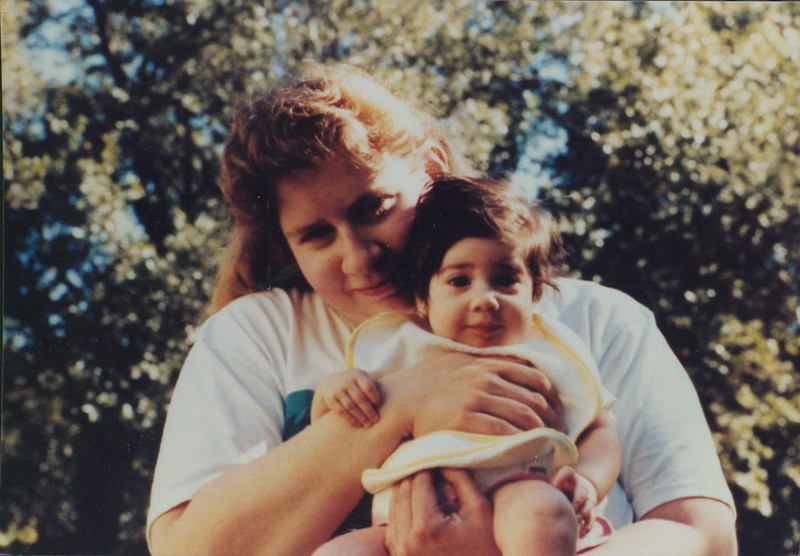One day a co-worker told me, “Multitasking makes you stupid.” It turned out that this was not a personal commentary directed at me. She had recently read an article to that effect and decided to share its wisdom. I’m keen on neither multitasking or stupidity.
I thought of all this when I read about the motorist who was reported by a fellow driver for talking on her mobile phone and breast-feeding whilst driving. I feel confident asserting that this form of multitasking falls into the “stupid” category, although not as cause and effect.
I’ve often wondered why people feel compelled to answer their cell phones, no matter where they are or what they are doing. J. is guilty, and he’s never been able to give me a good answer when I ask why he never fails to pick up calls. It’s one thing to expect a call. But, whether he’s driving, dining out or watching television with me, or otherwise engaged, he always answers his phone, as do people on the bus, in restaurants, and even in bathroom stalls. Most of the conversations that follow hint of their urgency: “Hey, what’s up? I’m on the bus. Yeah, long week. Yeah. Yeah.” or “Hi! Nah, we got out of the house for dinner. Did you get to the sale?” And so I wonder what was so important that this driver had to make or pick up this particular call while juggling the operation of a moving vehicle and breast-feeding. Is she one of those souls who think accidents happen only to other people? (The answer, as it turns out, is “yes.”)
I don’t drive, so I suspect this makes me less empathetic than I would be if I did. Many drivers flout speed limits and other traffic laws as their assertion of independence and as though they have some secret knowledge that moving in and out of expressway traffic at 75 miles per hour really isn’t that dangerous. Laws are just a nuisance, an intrusion by government, and/or an excuse for the authorities to collect revenue through tickets. The car has become the new mobile home and office. A man’s home is his castle, and so is his car. When you spend so much time in your car, it may seem reasonable to eat, drink, chat on the phone, apply makeup, and even watch TV (to say nothing of engaging in sexual activities) while motoring along. And now (although I’m certain this can’t be the first-ever incident), we can add breast-feeding baby to the list.
The driver in question, Genine Compton of Kettering, Ohio, “was given a ticket and a summons, and has been charged with a first-degree misdemeanor of child endangering and minor misdemeanor for unlawfully restraining (in other words, not restraining) her child, who, by law, should have been in a car seat.” She remains unrepentant, however. According to the New York Times, “Her children need to eat when they need to eat, she said, explaining, ‘If my child’s hungry, I’m going to feed it.’ She also said she would do the same again.”
Allow me to point out that the child who was apparently in such immediate danger of starvation or dehydration is two years old. Isn’t that old enough to wait a few minutes until Mommy can pull over and dig out some crackers or a breast? And doesn’t a two-year-old child deserve a more specific pronoun than “it”?
“‘Walking down the street can be dangerous,’ she said. ‘I’m not going to say that this one incident was just going to put us in harm’s way.’”
You’re not going to say it, but allow me. You put yourself, your children, and other drivers around you in harm’s way. You’re fortunate your little “it” didn’t become a human airbag.
The issue in this case was child endangerment, but public breast-feeding is another, if minor, controversy (minor because no one risks an accident or death over it, one hopes). Many breast-feeding mothers have become almost militant about their right to breast-feed in public; I’ve learned they call themselves “lactivists.” This doesn’t seem that unreasonable — less repressed peoples who live in tight-knit villages breast-feed openly and naturally without challenge, and it’s hard to find anything wrong with that. I would like to say that I’m unreservedly open-minded about it. But I can’t.
Long ago, when I was about 21 or so, a friend and I went to a local restaurant for lunch — a rare treat for financially strapped young people. The place has a typical setup; there’s a long bench against a wall, tables next to each other, and a row of chairs on the other side. In that situation, you can’t miss what your neighbors are up to.
I think I was on the bench, and my friend was on the chair across from me. Two women were sitting at the table next to us, although we were talking and barely noticed them at first.
Until they began breast-feeding their babies.
Almost simultaneously my friend and I started to send eye signals to each other. She had noticed the woman next to me, and I had noticed the woman next to her. When we saw each other’s rolling eyeballs, it hit us that both women were similarly engaged. I think we were more surprised than disturbed, but I vaguely recall that we didn’t appreciate it entirely, either. Perhaps it seemed too much like performing a bodily function in an inappropriate setting and was unappetizing, too.
I’m not sure how my friend feels about it now, and I vacillate. As a mother, she became more sensitive about better restaurants and other public places that aren’t family friendly, while I as a childless woman perceive a world in which many children seem left by doting parents to run amok. It made me realize, not for the first time, that most strongly held opinions are a matter of perception and that a mother and a childless woman see the world from different viewpoints. The same is true for a breast-feeding woman and everyone else.
I said that I waver about public breast-feeding, although I would never complain about it — it doesn’t bother me that much, if at all. But I don’t like self-righteousness or blindness to courtesy and common sense. In a perfect community, breast-feeding would be no more remarkable than eating or drinking in public, something that one does and sees without a thought. But we have not perfected our society, which is fragmented into many cultures. The perceived right to breast-feed should be tempered by respect for the wishes of others who have nothing against motherhood, but who don’t want to observe its intimacies while, say, dining. After all, even the most assertive mother wouldn’t change a diaper at a restaurant table — another necessary and natural function.
Then again, I wouldn’t have imagined breast-feeding while tooling down the highway . . . and talking on a cell phone.




